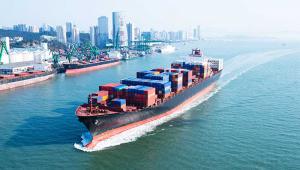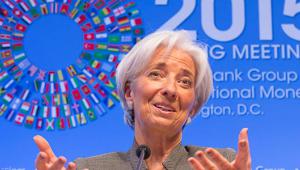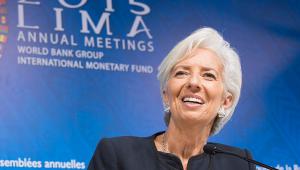Addressing a conference in India on 11 March, Lagarde said that, if Asia can build on its successes and rise to current challenges, the benefits will be felt throughout the region and beyond.
“Asia has a lot of be proud of,” she said. “It is the world’s most dynamic region and today accounts for 40% of the global economy.
“Over the next four years – even with slightly declining momentum – it stands to deliver nearly two-thirds of global growth. Given this vital economic role, making the most of Asia’s dynamism is of great interest to the entire world.”
She highlighted the economic “miracles” achieved by many countries in the region in a relatively short time. The region has been the “world’s leaders” in reducing poverty and has become a “byword for innovation”, while several of its countries are now “powerhouses of the global economy”.
“This increased interconnectedness means Asia now affects the world more than ever before; by the same token, Asia is now more deeply affected by global economic developments than ever before – and must respond to them,” she said.
She stated that Asia should counter the challenging global economic environment with supportive monetary policy, growth-friendly fiscal measures and macro-prudential measures to guard financial stability.
She noted that the policy specifics will vary between countries: while China should improve the allocation of credit to rebalance the economy away from economic development, Japan needs to tackle its dual labour markets and reform corporate governance.
Key to unlocking Asia’s potential, across is broader access to services like health and finance. This will mean targeting social spending at the neediest, she said, pointing to the Philippines’ pioneering conditional cash transfer programmes, and avoiding costly across-the-board subsidies.
Investing in efficient infrastructure to improve access to water, sanitation and electricity, greater trade integration, empowering women and addressing climate change will all also be crucial, she added.
“This region’s dynamism presents a historic opportunity to invest now in the future – and to advance Asia.
“Doing so will not only put Asia on the path to sustained growth, but also strengthen its role in the global economy – as a key contributor and as a leader of the 21st century,” she said.
While in India, Largarde and the country’s finance minister Arun Jaitley agreed to establish a capacity building centre in New Delhi.
The South Asia Regional Training and Technical Assistance Centre is expected to become a focal point for planning, coordinating and implementing the fund’s capacity development activities in the region.
Offering courses and seminars for policymakers and other government agencies from India, Bangladesh, Bhutan, Maldives, Nepal and Sri Lanka, the centre hopes to address existing training needs and respond to the demand for IMF training in the six countries.













